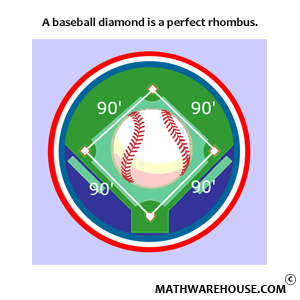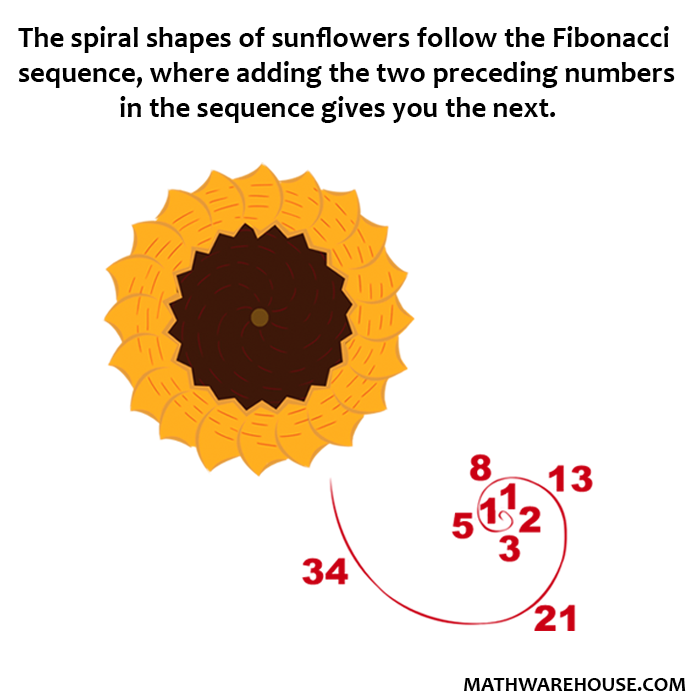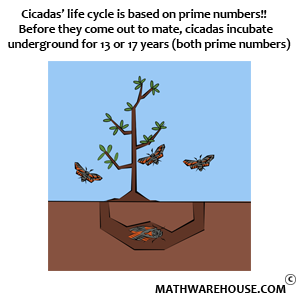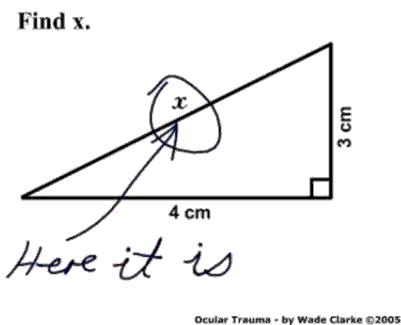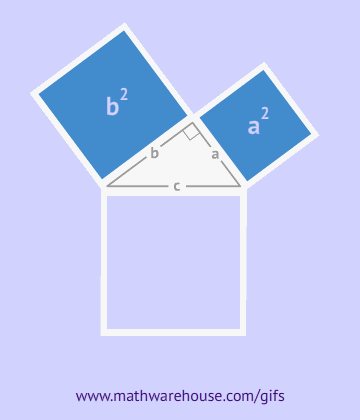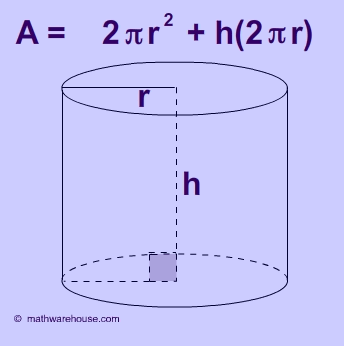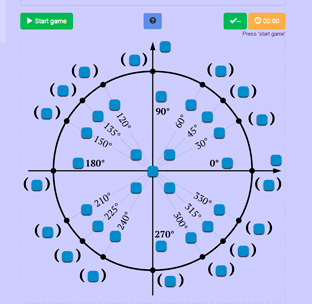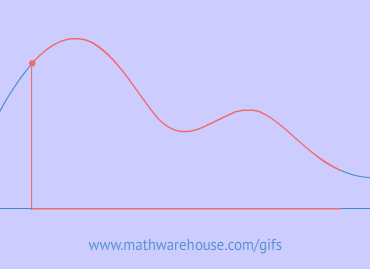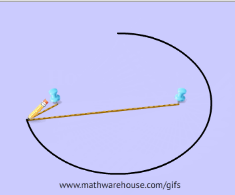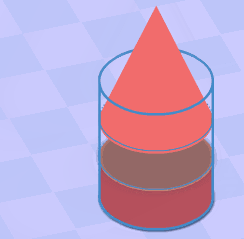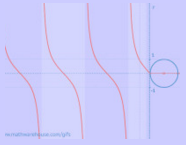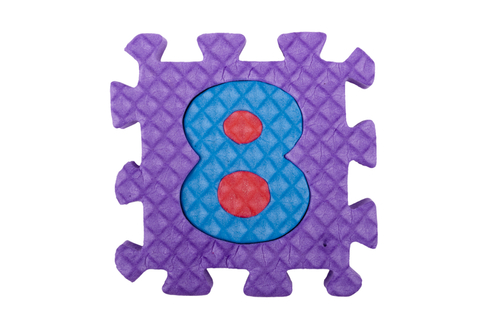Use the power rule for derivatives.
$$ \begin{align*} f(x) & = -9x^{\blue{50}}\\ f'(x) & = -9\blue{(50)}x^{\blue{50}-1}\\ & = -450x^{49} \end{align*} $$
$$f'(x) = -450x^{49}$$
Use the power rule for derivatives.
$$ \begin{align*} f(x) & = \frac 3 {14} x^{\blue 7}\\[6pt] f'(x) & = \frac 3 {14}\blue{(7)}x^{\blue 7 -1}\\[6pt] f'(x) & = \frac 3 2 x^{6} \end{align*} $$
$$\displaystyle f'(x) = \frac 3 2 x^6$$
Differentiate each term using the power rule or one of the basic rules.
$$ \begin{align*} f(x) & = x^{\blue 4} - 8x^{\blue 3} + 7x^{\blue 2} - \red{2x} + \red 1\\ f'(x) & = \blue 4 x^{\blue 4 -1} - 8\blue{(3)}x^{\blue 3 -1} + 7\blue{(2)} x^{\blue 2 -1} - \red{2(1)} + \red 0\\ & = 4x^3-24x^2+14x-2 \end{align*} $$
$$ f'(x) = 4x^3-24x^2+14x+2 $$
Differentiate each term using the power rule or one of the basic rules.
$$ \begin{align*} f(x) & = 9x^{\blue 5} - \frac 3 4 x^{\blue 3} + 13x^{\blue 2} + \red 8\\[6pt] f'(x) & = 9\blue{(5)}x^{\blue 5 -1} - \frac 3 4 \blue{(3)} x^{\blue 3 -1} + 13\blue{(2)}x^{\blue 2 -1} + \red 0\\[6pt] & = 45x^4 - \frac 9 4 x^2 + 26x \end{align*} $$
$$\displaystyle f'(x) = 45x^4 - \frac 9 4 x^2 + 26x$$
Rewrite $$f(x)$$ so each term has a power function form.
$$ f(x) = 2 - \sqrt x + 8\sqrt[3] x = 2 - x^{1/2} + 8x^{1/3} $$
Differentiate each term using basic rules or the power rule.
$$ \begin{align*} f(x) & = \red 2 - x^{\blue{1/2}} + 8x^{\blue{1/3}}\\[6pt] f'(x) & = \red 0 -\blue{\left(\frac 1 2\right)}x^{\blue{\frac 1 2} - 1} + 8\blue{\left(\frac 1 3\right)}x^{\blue{\frac 1 3} - 1}\\[6pt] & = -\frac 1 2x^{-1/2} + \frac 8 3 x^{-2/3} \end{align*} $$
Rewrite the derivative using radicals. Then rationalize any denominators that need it.
$$ \begin{align*} f'(x) & = -\frac 1 2x^{-1/2} + \frac 8 3 x^{-2/3}\\[6pt] & = -\frac 1 2\cdot \frac 1 {x^{1/2}} + \frac 8 3\cdot \frac 1 {x^{2/3}}\\[6pt] & = -\frac 1 2\cdot \frac 1 {\sqrt x} + \frac 8 3\cdot \frac 1 {\sqrt[3]{x^2}}\\[6pt] & = -\frac 1 {2\sqrt x} + \frac 8 {3\,\sqrt[3]{x^2}}\\[6pt] & = -\frac{\sqrt x}{2x} + \frac{8\sqrt[3] x}{3x} \end{align*} $$
$$\displaystyle f'(x) = -\frac{\sqrt x}{2x} + \frac{8\sqrt[3] x}{3x}$$
Rewrite the function so that each term has the form of a power function.
$$ f(x) = \frac{15} {\sqrt[5] x} - \sqrt[9] x = 15x^{-1/5} - x^{1/9} $$
Differentiate each term with the power rule.
$$ \begin{align*} f(x) & = 15x^{\blue{-1/5}} - x^{\red{1/9}}\\[6pt] f'(x) & = 15\blue{\left(-\frac 1 5\right)}x^{\blue{-\frac 1 5}-1} - \red{\frac 1 9}x^{\red{\frac 1 9} - 1}\\[6pt] & = -3x^{-6/5} - \frac 1 9x^{-8/9} \end{align*} $$
Rewrite the derivative so it involves radicals. Rationalize any denominators that need it.
$$ \begin{align*} f'(x) & = -3x^{-6/5} - \frac 1 9x^{-8/9}\\[6pt] & = -3\cdot \frac 1 {x^{6/5}} - \frac 1 9\cdot \frac 1 {x^{8/9}}\\[6pt] & = -\frac 3 {\sqrt[5]{x^6}} - \frac 1 9\cdot \frac 1 {\sqrt[9]{x^8}}\\[6pt] & = -\frac 3 {x\sqrt[5] x} - \frac 1 {9\sqrt[9]{x^8}}\\[6pt] & = -\frac{3\sqrt[5]{x^4}}{x^2} - \frac{\sqrt[9] x}{9x} \end{align*} $$
$$ \displaystyle f'(x) = -\frac{3\sqrt[5]{x^4}}{x^2} - \frac{\sqrt[9] x}{9x} $$
Rewrite the function so it has a power function form.
$$ f(x) = \frac{12}{x^6} = 12x^{-6} $$
Use the power rule to differentiate the function.
$$ \begin{align*} f(x) & = 12 x^{\blue{-6}}\\[6pt] f'(x) & = 12\blue{(-6)}x^{\blue{-6}-1}\\[6pt] & = -72x^{-7}\\[6pt] & = -\frac{72}{x^7} \end{align*} $$
Evaluate the derivative at $$x = 1$$.
$$ f'(1) = -\frac{72}{(1)^7} = -\frac{72} 1 = -72 $$
$$f'(1) = -72$$
Rewrite the function so each term has the power function form.
$$ f(x) = \frac{19}{x^{0.01}} + \frac{25}{x^{2/5}} = 19x^{-0.01} + 25x^{-2/5} $$
Differentiate each term using the power rule.
$$ \begin{align*} f(x) & = 19x^{\blue{-0.01}} + 25x^{\red{-2/5}}\\[6pt] f'(x) & = 19\blue{(-0.01)}x^{\blue{-0.01} - 1} + 25\red{\left(-\frac 2 5\right)}x^{\red{-\frac 2 5} - 1}\\[6pt] & = -0.19x^{-1.01} -10x^{-7/5} \end{align*} $$
Rewrite the derivative in fractional form.
$$ \begin{align*} f'(x) & = -0.19x^{-1.01} -10x^{-7/5}\\[6pt] & = -0.19\cdot \frac 1 {x^{1.01}} - 10\cdot \frac 1 {x^{7/5}}\\[6pt] & = -\frac{19}{100}\cdot \frac 1 {x^{1.01}} - \frac{10}{x^{7/5}}\\[6pt] & = -\frac{19}{100x^{1.01}} - \frac{10}{x^{7/5}} \end{align*} $$
$$\displaystyle f'(x) = -\frac{19}{100x^{1.01}} - \frac{10}{x^{7/5}}$$
Rewrite $$f$$ so each term is a power function.
$$ f(x) = 4x^2 - 2\sqrt x + \frac 6 x= 4x^2 - 2x^{1/2} + 6x^{-1} $$
Differentiate each term using the power rule.
$$ \begin{align*} f(x) & = 4x^{\blue 2} - 2x^{\blue{1/2}}+ 6x^{\blue{-1}}\\[6pt] f'(x) & = 4\blue{(2)}x^{\blue 2 -1} - 2\blue{\left(\frac 1 2\right)}x^{\blue{\frac 1 2} - 1} + 6\blue{(-1)}x^{\blue{-1}-1}\\[6pt] & = 8x - x^{-1/2} - 6x^{-2} \end{align*} $$
Rewrite using the original forms (radicals, fractions, etc) and rationalize any denominators that need it.
$$ \begin{align*} f'(x) & = 8x - x^{-1/2}-6x^{-2}\\[6pt] & = 8x - \frac 1 {x^{1/2}}-\frac 6 {x^2}\\[6pt] & = 8x - \frac 1 {\sqrt x}-\frac 6 {x^2}\\[6pt] & = 8x - \frac{\sqrt x} x -\frac 6 {x^2} \end{align*} $$
Evaluate the derivative at $$x = 4$$
$$ \begin{align*} f'(4) & = 8(4) - \frac{\sqrt 4} 4 -\frac 6 {(4)^2}\\[6pt] & = 32 - \frac 2 4 -\frac 6 {16}\\[6pt] & = 32 - \frac 1 2 -\frac 3 8\\[6pt] & = \frac{256} 8 - \frac 4 8 -\frac 3 8\\[6pt] & = \frac{249} 8 \end{align*} $$
$$ \displaystyle f'(4) = \frac{249} 8 $$
Rewrite the function so each term is a power function.
$$ f(x) = \frac 8 {\sqrt[3] x} - 7x^{23} + x^{-99} = 8x^{-1/3} - 7x^{23} + x^{-99} $$
Differentiate each term using the power rule.
$$ \begin{align*} f(x) & = 8x^{\blue{-1/3}} - 7x^{\blue{23}} + x^{\blue{-99}}\\[6pt] f'(x) & = 8\blue{\left(-\frac 1 3\right)}x^{\blue{-\frac 1 3} -1 } - 7\blue{(23)}x^{\blue{23}-1} + \blue{(-99)}x^{\blue{-99}-1}\\[6pt] & = -\frac 8 3 x^{-4/3} - 161x^{22} - 99x^{-100} \end{align*} $$
Rewrite the derivative using radical notation and rationalize denominators.
$$ \begin{align*} f'(x) & = -\frac 8 3 x^{-4/3} - 161x^{22} - 99x^{-100}\\[6pt] & = -\frac 8 3 \cdot \frac 1 {x^{4/3}} - 161x^{22} - 99x^{-100}\\[6pt] & = -\frac 8 {3\sqrt[3]{x^4}} - 161x^{22}-99x^{-100}\\[6pt] & = -\frac 8 {3x\sqrt[3] x} - 161x^{22}-99x^{-100}\\[6pt] & = -\frac{8\,\sqrt[3]{x^2}} {3x^2} - 161x^{22} - 99x^{-100}\\[6pt] \end{align*} $$
$$ \displaystyle f'(x) = -\frac{8\,\sqrt[3]{x^2}} {3x^2} - 161x^{22} - 99x^{-100} $$
Expand the binomial.
$$ \begin{align*} f(x) & = \left(5x - 4\right)^3\\ & = (5x)^3 + 3(5x)^2(-4) + 3(5x)(-4)^2 + (-4)^3\\ & = 125x^3 -300x^2 +240x - 64 \end{align*} $$
Differentiate each term using the power rule or basic rules.
$$ \begin{align*} f(x) & = 125x^{\blue 3} -300x^{\blue 2} +240\red x - \red{64}\\[6pt] f'(x) & = 125\blue{(3)}x^{\blue 3 - 1} - 300\blue{(2)}x^{\blue 2 -1} + 240\red{(1)} - \red 0\\[6pt] & = 375x^2 - 600x + 240 \end{align*} $$
$$f'(x) = 375x^2 - 600x + 240$$
Write each term as a power function.
$$ f(x) = -8\left(\sqrt x - 3x\right)^2 = -8\left(x^{1/2} - 3x\right)^2 $$
Expand the binomial.
$$ \begin{align*} f(x) & = -8\left(x^{1/2} - 3x\right)^2\\[6pt] & = -8\left(x - 6x(x^{1/2}) + 9x^2\right)\\[6pt] & = -8\left(x - 6x^{3/2} + 9x^2\right)\\[6pt] & = -8\left(-6x^{3/2} + 9x^2 + x\right)\\[6pt] & = 8\left(6x^{3/2} - 9x^2 - x\right) \end{align*} $$
Differentiate each term using the power rule or a basic rule.
$$ \begin{align*} f(x) & = 8\left(6x^{\blue{3/2}} - 9x^{\blue 2} - \red x\right)\\[6pt] f'(x) & = 8\left(6\blue{\left(\frac 3 2\right)}x^{\blue{3/2} - 1} - 9\blue{(2)}x^{\blue 2 - 1} - \red 1\right)\\[6pt] f'(x) & = 8\left(9x^{1/2} - 18x - 1\right) \end{align*} $$
Rewrite the first term using radical notation.
$$ f'(x) = 8\left(9x^{1/2} - 18x - 1\right) = 8\left(9\sqrt x - 18x - 1\right) $$
$$ f'(x) = 8\left(9\sqrt x - 18x - 1\right) $$
Convert each term to power function forms, then simplify each term.
$$ \begin{align*} f(x) & = \frac{3x}{\sqrt[6] x} - x\sqrt x\\[6pt] & = \frac{3x}{x^{1/6}} - x\cdot x^{1/2}\\[6pt] & = 3x^{5/6} - x^{3/2} \end{align*} $$
Differentiate each term using the power rule.
$$ \begin{align*} f(x) & = 3x^{\blue{5/6}} - x^{\red{3/2}}\\[6pt] f'(x) & = 3\blue{\left(\frac 5 6\right)}x^{\blue{\frac 5 6} - 1} - \red{\left(\frac 3 2\right)}x^{\red{\frac 3 2} - 1}\\[6pt] & = \frac 5 2x^{-1/6} - \frac 3 2 x^{1/2} \end{align*} $$
Rewrite the derivative using radical notation. Rationalize where appropriate.
$$ \begin{align*} f'(x) & = \frac 5 2x^{-1/6} - \frac 3 2 x^{1/2}\\[6pt] & = \frac 5 2\cdot \frac 1 {x^{1/6}} - \frac 3 2\cdot \sqrt x\\[6pt] & = \frac 5 {2\sqrt[6] x} - \frac{3\sqrt x} 2\\[6pt] & = \frac{5\sqrt[6]{x^5}}{2x} - \frac{3\sqrt x} 2 \end{align*} $$
$$ \displaystyle f'(x) = \frac{5\sqrt[6]{x^5}}{2x} - \frac{3\sqrt x} 2 $$
Rewrite the function so each term has a power function form.
$$ f(x) = \sqrt[3] x\left(2x^2 + \sqrt[5] x\right) = x^{1/3}\left(2x^2 + x^{1/5}\right) $$
Distribute the $$x^{1/3}$$
$$ f(x) = x^{1/3}\left(2x^2 + x^{1/5}\right) = 2x^{7/5} + x^{8/15} $$
Differentiate each term using the power rule.
$$ \begin{align*} f(x) & = 2x^{\blue{7/5}} + x^{\red{8/15}}\\[6pt] f'(x) & = 2\blue{\left(\frac 7 5\right)}x^{\blue{7/5}-1} + \red{\left(\frac 8 {15}\right)}x^{\red{8/15}-1}\\[6pt] & = \frac{14} 5x^{2/5} + \frac 8 {15}x^{-7/15} \end{align*} $$
Rewrite the derivative using radical forms. Rationalize denominators as appropriate.
$$ \begin{align*} f'(x) & = \frac{14} 5x^{2/5} + \frac 8 {15}x^{-7/15}\\[6pt] & = \frac{14} 5\cdot \sqrt[5]{x^2} + \frac 8 {15}\cdot \frac 1 {x^{7/15}}\\[6pt] & = \frac{14\sqrt[5]{x^2}} 5 + \frac 8 {15}\cdot \frac 1 {\sqrt[15]{x^7}}\\[6pt] & = \frac{14\sqrt[5]{x^2}} 5 + \frac{8\sqrt[15]{x^8}} {15x} \end{align*} $$
$$\displaystyle f'(x) = \frac{14\sqrt[5]{x^2}} 5 + \frac{8\sqrt[15]{x^8}} {15x}$$

